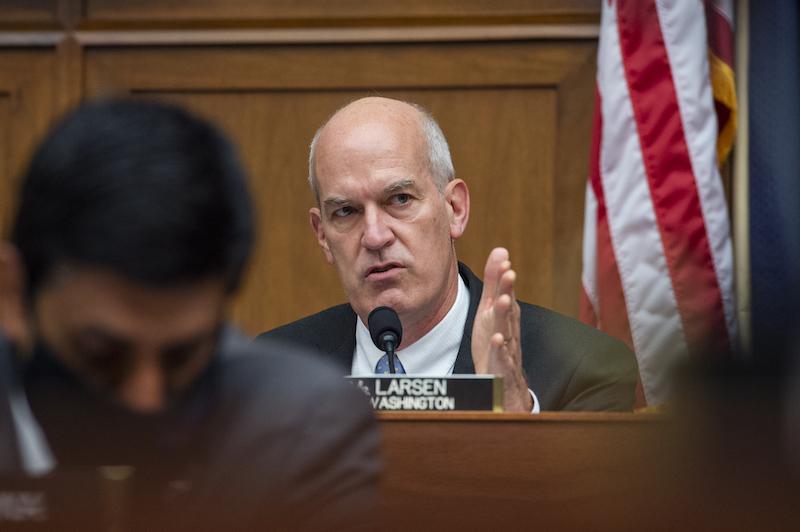Optimism for FAA Reauthorization as Congress Navigates Differences

Rep. Rick Larsen (D-Wash.), a key figure in the U.S. House of Representatives Transportation & Infrastructure (T&I) Committee, has voiced confidence in Congress’s ability to pass crucial Federal Aviation Administration (FAA) reauthorization legislation in the upcoming period. This optimism comes despite the presence of distinct differences between the House and Senate versions of the bill, with a looming deadline that could potentially lead to a partial shutdown of the agency if not met.
The FAA’s previous 5-year authorization is on a temporary extension that expires on March 8, necessitating either a new reauthorization or another extension to avoid operational disruptions. Larsen, addressing the International Aviation Club of Washington, DC, acknowledged some real policy differences between the chambers but expressed a belief in the ability to reconcile these differences through ongoing discussions.
The House of Representatives has already shown significant bipartisan support for the FAA, passing a 5-year reauthorization bill in July 2023 by a substantial margin. The Senate’s version, having cleared the Senate Commerce, Science & Transportation Committee last week, is now under deliberation, highlighting the urgency and importance of aligning both chambers on key issues.
Among the notable points of contention is the approach to slot allocations at Washington Reagan National Airport (DCA) and the mandatory retirement age for commercial airline pilots. The Senate proposes adding five beyond-perimeter slot pairs at DCA, a move opposed by the House due to concerns about increased congestion and delays. The debate over pilot retirement age also remains unresolved, with the House favoring an extension to 67, while the Senate maintains the current age limit of 65.
The push for FAA reauthorization underscores the critical need for a unified legislative framework to support the aviation sector’s growth, safety, and efficiency. The wide bipartisan support for the House bill signals a collective acknowledgment of the FAA’s pivotal role in maintaining the safety and reliability of U.S. aviation.
As the deadline approaches, both the House and Senate are engaged in efforts to reconcile their versions of the bill, with relevant staff members comparing the different provisions to find a common ground. Larsen’s remarks reflect a pragmatic approach to legislative negotiation, emphasizing the importance of safety provisions and responsive measures to recent incidents, such as the Alaska Airlines Boeing 737-9 door-plug accident.
The commitment to aviation safety, alongside the strategic management of FAA reauthorization, highlights Congress’s dedication to ensuring the continued prosperity and security of the U.S. aviation industry. With the March 8 deadline nearing, the focus remains on achieving consensus and enacting legislation that bolsters the FAA’s capacity to oversee and enhance the nation’s air travel infrastructure.
